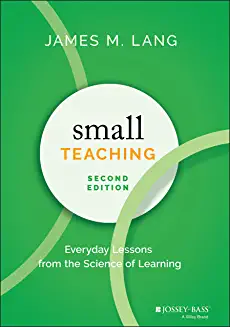MSU Values
-
Student-centered learning refers to a teaching approach where “what students learn, how they learn it, and how their learning is assessed are all driven by each individual student’s needs and abilities” (ISTE). Student-centered approaches provide personalized, competency-based learning experiences that provide students with choice, voice, and real-world connections.
Student-Centered Learning is…
Active
Students are engaged in doing things and thinking about what they are doing. (Bonwell & Eison, 1991).
Students Thinking & DoingPerson-Centered
Focused on student interests and needs.
Individualized
Unique pacing and/or course of study for each student.
High-Touch
Hands-on, experiential learning
Ways to develop a student-centered learning environment (Adapted from Weimer, 2013)
- Focus on higher-order thinking rather than memorization, allowing learners to actively explore and reflect on their learning.
- Serve as a facilitator that promotes learning rather than a content expert or authoritarian classroom manager.
- Promote independent, active, and autonomous learning, as learners become more responsible for their own learning.
- Utilize assessments as tools to promote learning and not tools to generate grades. Incorporate authentic assessments with meaningful, ongoing feedback.
-
Today’s students seek flexible options for when, where, and how their learning takes place. Contemporary learning modalities support student-centered teaching approaches, increase opportunities for active learning, and expand accessibility through flexible modalities. Contemporary instruction offers options for learning to occur anywhere, anytime by providing students choice with multiple delivery options.
-
Excellent teachers (Adapted From Hattie, 2003)…
- Are passionate about teaching and learning; and engage students in the learning process.
- Have a high respect for students.
- Create an optimal climate for learning; and have a positive influence on learners' achievement.
- Develop students' self-regulation, self-efficacy, and self-esteem as learners.
- Assess levels of understanding and progress; and provide relevant, useful feedback.
- Provide appropriate challenging tasks and goals for students.
- Adopt a problem-solving stance to their work to anticipate, plan, and improvise to meet learner needs.
-
Continuous improvement is a "professional commitment to an ongoing process of learning, self-reflection, adaptation, and growth" (Glossary of Educational Reform). In teaching, it involves many of the same processes involved in scholarly teaching. Scholarly teachers engage in reflective inquiries into the effectiveness of their instruction through the intentional and systematic use of critical reflection and evidence-based teaching practices.
Teaching Resources
-
 Recommended ReadingSmall TeachingDon't miss Jim Lang at the MSU Faculty Showcase on Teaching & Learning. Register on My Learning Connection.
Recommended ReadingSmall TeachingDon't miss Jim Lang at the MSU Faculty Showcase on Teaching & Learning. Register on My Learning Connection.The following book titles are available through the FCTL.
- Cheating Lessons: Learning from Academic Dishonesty
- Classroom Assessment Techniques: A Handbook for College Teachers
- Clickers in the Classroom: Using Classroom Response Systems to Increase Student Learning
- The Copyright Ninja: Rise of the Ninja
- Discussion as a Way of Teaching: Tools and Techniques for Democratic Classrooms
- Dynamic Lecturing: Research-Based Strategies to Enhance Lecture Effectiveness
- Engaging Ideas: The Professor’s Guide to Integrating Writing, Critical Thinking, and Active Learning in the Classroom
- How Learning Works: Seven Research-Based Principles for Smart Teaching
- Introduction to Rubrics: An Assessment Tool to Save Grading Time, Convey Effective Feedback and Promote Student Learning
- The Online Teaching Survival Guide: Simple and Practical Pedagogical Tips
- Reach Everyone, Teach Everyone: Universal Design for Learning in Higher Education
- Student Engagement Techniques: A Handbook for College Teachers
- Teaching Naked Techniques: A Practical Guide to Designing Better Classes
- Teaching Race: How to Help Students Unmask and Challenge Racism
- Teaching Students How to Learn: Strategies you can Incorporate into any Course to Improve Student Metacognition, Study Skills, and Motivation
- Team-Based Learning: A Transformative Use of Small Groups in College Teaching
- What the Best College Teachers Do
-
- AAC&U Meetings and Events
- AHEAD Conferences
- Best Teachers Institute Home page
- Distance Teaching & Learning Conference Home page
- EDUCAUSE Annual Conference & Events page
- Experiential Learning Conference Events page
- Higher Education Teaching and Learning Home page
- Lilly Conferences page
- OLC Conferences page
- POD Network Events page
- Research on Teaching and Learning Summit 2021 Event page
- Scholarship of Teaching and Learning Conference Event page
- Faculty Focus - The Teaching Professor Conference page
References
Hattie, J. (2003). Teachers make a difference, what is the research evidence?. Paper presented at the Building Teacher Qualityh: What does the research tell us ACER Research Conference, Melbourne, Australia.
ISTE. Student Centered Learning. Retrieved: https://www.iste.org/standards/essential-conditions/student-centered-learning
Image (header)credit: Pixabay
Missouri State University Strategic Plan
Missouri State University Mission, Vision, Values
Weimer, M. (2013). Learner Centered Teaching: Five Key Changes to Practice. Jossey-Bass.
